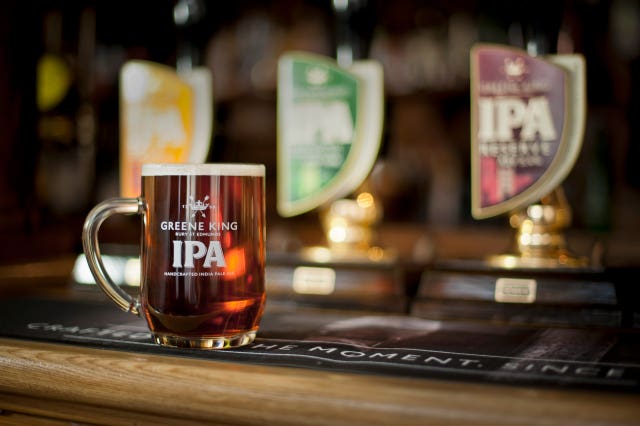London sees ‘biggest change in living memory’ in 12 months since Covid hit
Demand for office space has shrunk in the Capital as firms have looked increasingly outside the M25.

Business owners and industry experts have said London has witnessed its “biggest change in living memory” after the coronavirus pandemic emptied the streets of the Capital.
Bustling tourist hotspots and busy City office blocks went silent in March as the Government lockdown forced the vast majority of people to work from home and visitor numbers dried up.
A year later, just over half of UK workers have returned to their workplaces but the impact on the City of London is still particularly stark.
Mark Dixon, chief executive of office giant IWG, told the PA news agency demand for central London office space has shrunk over the past 12 months, with more firms eying up opportunities outside the M25.
He said the company has seen demand in the City fall by 26%, with a 175% increase in Uxbridge and 52% rise in High Wycombe.
He added that the high cost of living in London has particularly weighed on its recovery in demand.

“For a lot of young people, working in London is a fantastic place – if they didn’t have to commute,” he said.
“So, if they could have a short tube ride to go from A to B, fantastic, but the cost of living in London can sort of be prohibitive.
“What we saw during Covid is that liveable cities were less affected than what we called ‘unliveable cities’ or very expensive cities.
“So, if you looked at cities like Copenhagen – where there’s lots of affordable housing, it’s very easy to get to work, there’s a reasonably priced and very good public transport system – it was much, much less affected.”
However, commercial property experts have said there have been green shoots of recovery in recent months with an improvement in investment in the City.
Andrew Thomas, head of international capital markets at Colliers, said: “As the first signs of spring are beginning to show, so are the first signs of the UK workforce being able to leave the enforced hibernation of lockdown working.
“The last 12 months have created the biggest change in living memory for London and we are only at the beginning of the journey.
“The panic that pervaded this time last year on the failure of urbanisation and the death of the office has disappeared with more voices now coming out in support of living and working in our city centres.”
He added that property portfolios have shifted over period with investors and developers looking increasingly at smaller projects in the capital.
Colliers said that demand for the largest developments has dropped 64% year-on-year, although total activity it only down by 20%.
Property giant Savills also reported another rebound last month, with it reporting £346.5 million in sales in February after a quiet January.
However, it said this was still 30% down on February 2020 despite hopes regarding the impact of the UK’s positive vaccination roll-out.
International investment has improved in recent months, but international travel into City has remained thwarted by international travel curbs.

Robert Franks, co-founder of luxury trainer retailer Kick Game, said trade has been hit hard by closures but that store sales have seen their recovery held back by low numbers of tourists in the capital.
The retailer, which specialises in limited addition items, warned that there is still a shadow of uncertainty as to how the tourist market will recover in 2021 despite the Prime Minister’s road map.
“We are really reliant on people from the Middle East and China in the summer – that trade can make or break our year,” he told PA.
“Online has been great and kept us moving forward over the past year but we really want to see those customers back this summer.”
However, Mr Franks highlighted that the impact on the retail property market had created opportunities for independent retailers to move into sites they previously could not have afforded.
“Everything is weird. Stores have been hit so hard but we’ve been able to open our new ones because landlords have been happy to agree turnover-based rents.
“If you would have told me a year ago that we would have opened stores in Burlington Arcade and in Covent Garden opposite the Apple store I’d have thought you were mad.”
London’s hospitality sector has also seen a major shift in the property market, with many closing sites for good and competitors such as Wetherspoons revealing plans to target more central London sites.
Greg Sage, corporate affairs director at pub giant Greene King, said he hopes the Government will encourage more people back into city centres to aid the recovery of its hospitality venues.

“It’s been an incredibly challenging year for our central London pubs, which have had to cope not only with the numerous closures and restrictions brought about by the pandemic but also a complete absence of tourists and workers in the capital when pubs were able to trade,” he said.
“We’re looking forward to reopening some of our pubs on April 12.
“However, given the lack of outdoor space in the city, we expect to open just 33 of our 176 London pubs on that date.
“Even with the positivity around the rollout of the vaccine and plans to end social distancing this summer, we need Government and private sector action to encourage a return of people to city centres.”





